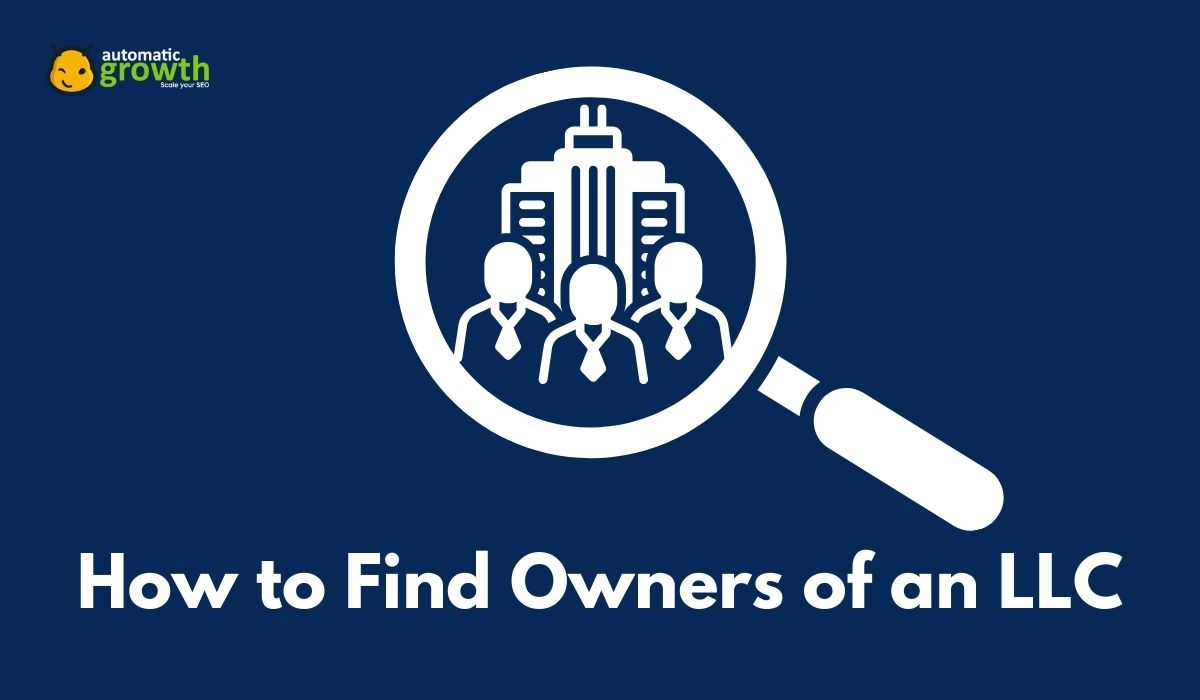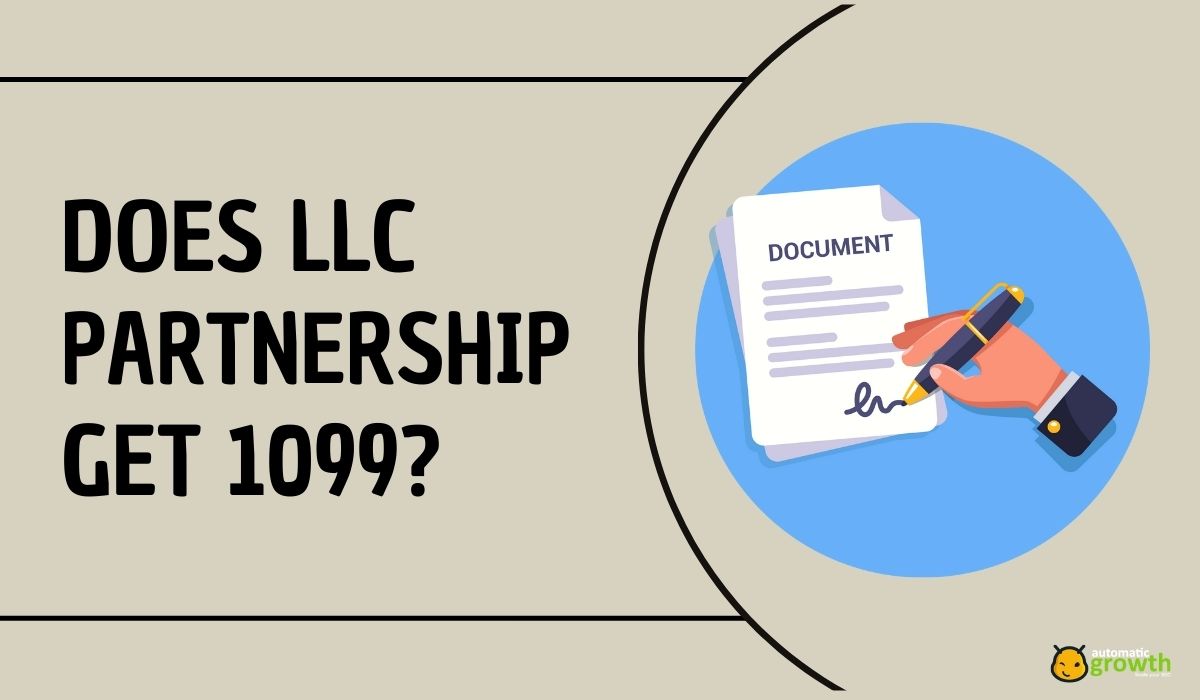Discovering the owners of a Limited Liability Company (LLC) can be crucial for various reasons, from due diligence in business dealings to legal research. While LLCs offer privacy and limited liability, their ownership information isn't always straightforward to uncover. In this guide, we’ll walk you through the practical steps on how to find owners of an LLC, exploring public records, state business registries, legal filings, and networking strategies.
Whether you're a potential investor, a business partner, or simply curious, understanding how to navigate these resources is key to uncovering the often elusive information about LLC ownership.
8 Ways to Find Owners of an LLC
Finding the owners of a Limited Liability Company requires a blend of research, legal understanding, and sometimes direct communication. Here are various ways on how to find owners of an LLC:
1. State Business Entity Searches
Most LLCs in the United States are registered with a state's Secretary of State office. These offices typically offer an online search tool where you can enter the name of the LLC and access its public records. Documents such as the LLC's Articles of Organization or annual reports often contain information about its members. [1] The level of detail in these documents can vary by state, but they are a primary resource for identifying LLC ownership.
2. LLC Operating Agreements
The operating agreement of an LLC is a detailed document that outlines the ownership and operating procedures of the company. While these are not usually public documents, in certain circumstances, such as legal proceedings, they can become part of the public record. Alternatively, you can directly request this document from the LLC, particularly if you have a legitimate business interest in knowing the ownership.
3. Local Government Records
Local government entities, like county clerk's offices, maintain records on businesses operating within their jurisdiction. If the LLC owns property, property tax records can reveal the owners' names. Similarly, business licenses and permits, often required by local governments, can include ownership information.
4. Networking and Industry Connections
Leveraging professional networks can be an effective way to learn about an LLC's ownership. Platforms like LinkedIn might have profiles of LLC members. Additionally, networking within the industry or business community can yield information, as others may have direct or indirect knowledge about the LLC’s members.
5. Legal or Public Records
Public records such as court filings can be a treasure trove of information. If the LLC has been involved in legal proceedings, the court records could reveal the identities of its members. Similarly, bankruptcy filings, which are public, often contain detailed information about a company's ownership and structure.
Fast Facts
“Many states require LLCs to file annual reports, which can sometimes include information about the owners, though the level of detail varies.”
6. Commercial Database Services
There are specialized, subscription-based services that provide detailed business information, including LLC ownership. Services like Dun & Bradstreet or LexisNexis are used frequently by professionals for in-depth business research, though they come at a cost.
7. Press Releases and Media Coverage
For more prominent or active LLCs, business news outlets, press releases, or interviews can often mention the names of LLC members. This approach is particularly useful for high-profile companies where public interest generates more media coverage.
8. Direct Inquiry
One of the most straightforward methods is to contact the LLC directly. If you have a legitimate reason, such as potential business partnerships or legal matters, the LLC might disclose its ownership information willingly.
While finding the owners of an LLC can be complex due to privacy laws and varying state regulations, these methods provide a comprehensive approach. The level of success in identifying LLC members can depend on the specific circumstances of the LLC and the resources available to the researcher.
What Are Owners of LLCs Called?
Owners of Limited Liability Companies (LLCs) are commonly referred to as "members." An LLC can have one member (known as a single-member LLC) or multiple members (in a multi-member LLC).
Key Points About LLC Members
-
Equity Ownership: Members hold an equity interest in the LLC, which is typically proportional to their investment or agreed-upon terms in the LLC operating agreement.
-
Rights and Responsibilities: The rights, responsibilities, and obligations of members are often outlined in an operating agreement, a key document that governs the LLC's internal operations.
-
Management Structure: LLCs can be member-managed or manager-managed. In a member-managed LLC, the members actively participate in the day-to-day management of the company. In contrast, a manager-managed LLC appoints one or more managers to handle the business operations, and these managers may or may not be members.
-
Profit Distribution: Members typically share in the profits of the LLC. The distribution of these profits is often outlined in the operating agreement and can be allocated in different ways, not necessarily directly tied to the percentage of ownership.
-
Liability Protection: Members enjoy limited liability protection, meaning their personal assets are generally protected from the debts and liabilities of the LLC, a key feature distinguishing LLCs from sole proprietorships or partnerships.
Understanding the role and definition of members is crucial for anyone involved with or considering forming an LLC, as it affects aspects like management, profit sharing, and legal responsibilities.
Is the Owner of an LLC Public Record?
Whether the owner of an LLC is a matter of public record can vary depending on several factors, including the state in which the LLC is registered and the specific regulations of that state.
In the United States, LLCs are formed at the state level, and each state has its own rules and requirements for business registration and disclosure. Here are some general considerations:
-
State-Specific Requirements: Some states require LLCs to list their members (owners) in the Articles of Organization or similar formation documents when the LLC is created. These documents are typically public records and can be accessed through the state's Secretary of State office or a similar agency.
-
Annual Reports: Many states require LLCs to file annual reports which may include information about the current members. However, the level of detail required in these reports varies by state.
-
Level of Transparency: Some states have more stringent transparency requirements than others. For example, states like Wyoming and Delaware are known for offering a high level of privacy and do not require LLCs to publicly disclose their owners.
















